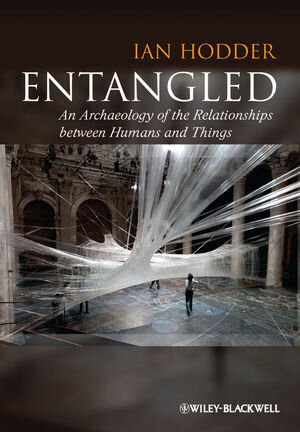
"Entangledmay be Ian Hodder's most theoreticallyecumenical book to date. The discussion of the various currentapproaches being used in archaeology, anthropology, and many otherdisciplines makes this an extremely valuable work . . .„Hodder has written a tremendously useful addition to theliterature on the relationship of people and things that deservesclose reading.“ (Current Anthropology, 1 August2013)
"Ian Hodder has written an extremely interesting, rigorously argued and intellectually adventurous book about thenature of things. . . Readers working across the social sciencesand humanities, and particularly those working at the intersectionof the physical and human sciences, will find the messy openness ofHodder's book vibrant and compelling.„ (Critical Quarterly, 2 July 2013)
“Summing Up: Recommended. Graduate students, faculty, professionals.„ (Choice, 1 May2013)“The quantity and diversity of Hodder's readings are simplyastonishing. His new conception of material entanglements is goingto change the way archaeologists understand theirfield.„
- Norman Yoffee, University of Michigan
“Entangled is nothing less than a reframing ofarchaeological enquiry into things. It is a fundamental, first-principles rethinking of how archaeologists should understandthe world around them.„
- Matthew H. Johnson, Northwestern University
“This book is a provocative and exciting contribution toarchaeological theory and beyond. Its central thesis is thatentanglement is both a condition of being in the world and aprocess of linking entities together in networks orassemblages. In charting a course across material, social, and evolutionary domains, it provides a novel way of bridging theGreat Divide between the social and natural sciences."
- Bob Preucel, University of Pennsylvania
* Argues that the interrelationship of humans and things is adefining characteristic of human history and culture
* Offers a nuanced argument that values the physical processes ofthings without succumbing to materialism
* Discusses historical and modern examples, using evolutionarytheory to show how long-standing entanglements are irreversible andincrease in scale and complexity over time
* Integrates aspects of a diverse array of contemporary theoriesin archaeology and related natural and biological sciences
* Provides a critical review of many of the key contemporaryperspectives from materiality, material culture studies andphenomenology to evolutionary theory, behavioral archaeology, cognitive archaeology, human behavioral ecology, Actor NetworkTheory and complexity theory







